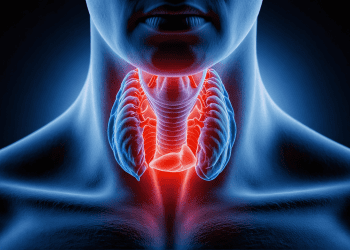Gut health overview refers to the overall well-being of your digestive system, particularly the gastrointestinal (GI) tract. It’s not just about regular bowel movements; gut health is vital for your overall physical and mental wellness.
At the heart of gut health is the gut microbiome, a diverse community of trillions of microorganisms, including bacteria, viruses, and fungi.
These microbes play essential roles in digestion, nutrient absorption, immune regulation, and even mental health. When the gut microbiome is out of balance, it can lead to various health issues, from digestive discomfort to chronic diseases.
In this article, we’ll explore the importance of gut health, the role of the gut microbiome, and practical strategies to enhance your gut health.
What is Gut Health?
Gut health is a multifaceted concept that refers to the overall well-being of your digestive system, particularly the gastrointestinal (GI) tract. It’s not just about avoiding discomfort or maintaining regular bowel movements; gut health encompasses a range of functions that are crucial for your physical and mental well-being.
Components of Gut Health
Understanding gut health involves recognizing its key components, which include:
1. Digestive Health
At its core, digestive health involves the effective processing of food and absorption of nutrients. A healthy gut efficiently breaks down food, allowing your body to extract essential vitamins and minerals. This process is vital for maintaining energy levels and supporting overall bodily functions.
2. Immune Function
Did you know that about 70% of your immune system is located in your gut? The gut plays a crucial role in immune function by acting as a barrier against pathogens and harmful substances. A healthy gut microbiome helps regulate immune responses, ensuring that your body can effectively defend itself against infections and diseases.
3. Microbiome Diversity
The gut microbiome consists of trillions of microorganisms, including bacteria, viruses, and fungi. A diverse microbiome is essential for gut health, as it contributes to various metabolic processes and helps maintain a balanced environment in the gut. When the microbiome is diverse, it can better resist harmful pathogens and support overall health.
The Interconnection of Gut Health Components
These components are interconnected; for instance, a balanced microbiome supports digestive health and immune function. Conversely, poor gut health can lead to dysbiosis, an imbalance in the gut microbiome, which can trigger digestive issues, weaken the immune system, and contribute to various health problems.
In summary, gut health is a complex interplay of digestive efficiency, immune function, and microbiome diversity. Understanding these components is crucial for recognizing the importance of maintaining a healthy gut, which ultimately supports your overall health and well-being.
The Gut Microbiome in the Context of Gut Health Overview
The gut microbiome is a fascinating and complex ecosystem composed of trillions of microorganisms, including bacteria, viruses, fungi, and other microbes that reside in our gastrointestinal (GI) tract. This diverse community plays a crucial role in maintaining gut health, which is essential for our overall well-being.
Composition of the Gut Microbiome
The gut microbiome is not uniform; it varies significantly from person to person. Factors such as genetics, diet, environment, and lifestyle all contribute to this unique microbial composition. Generally, the gut microbiome is made up of:
| Microorganism Type | Description | Role in Gut Health |
| Bacteria | Most abundant microorganisms in the gut | Aid in digestion, produce vitamins, and protect against pathogens |
| Viruses | Includes bacteriophages | Regulate bacterial populations and maintain microbial balance |
| Fungi | Present in smaller numbers | Participate in digestion and influence immune responses |
| Archaea | Involved in breaking down complex carbohydrates | Produce gases like methane |
Importance of Microbiome Diversity for Gut Health
Microbiome diversity is vital for gut health. A diverse gut microbiome can better adapt to changes, resist infections, and perform essential functions more effectively. Here are some reasons why diversity matters:
| Aspect | Importance |
| Enhanced Resilience | A diverse microbiome can withstand disturbances better than a less diverse one. |
| Improved Digestion | Different microbes enhance nutrient absorption and metabolism. |
| Immune Support | A varied microbiome helps train the immune system to differentiate between harmful and harmless substances. |
| Protection Against Pathogens | A rich microbial diversity can outcompete harmful bacteria, lowering infection risks. |
Factors Influencing Gut Health
Several factors can influence gut health, including dietary choices, lifestyle factors, and other external influences. Understanding these factors can help you make informed decisions to support your gut health.
Dietary Choices
Your diet plays a significant role in shaping your gut microbiome. Here’s how:
- Fiber-Rich Foods: A diet high in fiber from fruits, vegetables, whole grains, and legumes promotes the growth of beneficial gut bacteria. These bacteria ferment fiber, producing short-chain fatty acids (SCFAs) that nourish gut cells and support immune function.
- Diverse Diet: Eating a wide variety of foods can enhance microbiome diversity. Different foods provide different nutrients that support various microbial species.
- Limit Processed Foods: Diets high in sugar and unhealthy fats can negatively impact gut health by promoting the growth of harmful bacteria and reducing microbial diversity.
| Food Type | Benefits for Gut Health |
| Fruits and Vegetables | High in fiber, promote beneficial bacteria growth |
| Whole Grains | Provide essential nutrients and fiber |
| Legumes | Rich in fiber and protein, support diverse microbiome |
| Fermented Foods | Contain probiotics that enhance gut health |
| Processed Foods | Often high in sugars and unhealthy fats, can negatively impact gut health |
Lifestyle Factors
Your lifestyle choices can also impact gut health significantly:
- Stress: Chronic stress can alter gut motility and increase gut permeability, leading to dysbiosis. The gut-brain axis, which links the gut and the brain, means that mental health can directly affect gut health.
- Sleep: Quality sleep is essential for maintaining a healthy gut. Poor sleep can disrupt the microbiome and lead to increased inflammation and digestive issues.
- Physical Activity: Regular exercise has been shown to promote a diverse microbiome. It helps improve gut motility and reduces stress, both of which contribute to better gut health.
Lifestyle Factors Influencing Gut Health
| Lifestyle Factor | Impact on Gut Health | Recommendations |
|---|---|---|
| Stress Management | Chronic stress can negatively impact gut health by promoting inflammation and disrupting gut motility. | Practice meditation, yoga, or deep breathing exercises regularly. |
| Sleep | Poor sleep can disrupt the microbiome and lead to increased inflammation. | Aim for 7-9 hours of quality sleep each night. |
| Physical Activity | Regular exercise has been shown to promote a diverse gut microbiome. | Aim for at least 150 minutes of moderate exercise each week. |
Maintaining a healthy lifestyle can significantly improve gut health and overall well-being.
Other Factors
Several additional factors can influence the gut microbiome:
| Factor | Description | Impact on Gut Health |
| Age | The composition of the gut microbiome changes throughout life, from infancy to old age. | Infants born via cesarean section may have different microbial exposure than those born vaginally, impacting their gut health. |
| Antibiotic Use | Antibiotics can disrupt the balance of the gut microbiome, killing both harmful and beneficial bacteria. | This can lead to dysbiosis and increase the risk of infections and other health issues. |
Understanding these factors is essential for maintaining a healthy gut microbiome, which is a key component of the broader gut health overview. By making informed dietary and lifestyle choices, you can support your gut health and, in turn, enhance your overall well-being.
Gut Health Overview and Overall Health
The connection between gut health and overall health is profound and multifaceted. Research increasingly shows that the state of our gut microbiome can significantly influence various aspects of our health, including immune function, mental well-being, metabolic processes, and more. Let’s explore these connections in detail.
Immune System Function
A healthy gut plays a pivotal role in maintaining a robust immune system. About 70% of the body’s immune system is located in the gut, where the gut-associated lymphoid tissue (GALT) interacts with the gut microbiome. This interaction helps identify and neutralize harmful substances that enter the body.
- Gut Microbiota as a Defense: The gut microbiota helps maintain the gut barrier, preventing pathogens from entering the bloodstream. It also produces antimicrobial compounds that protect against infections.
- Nutrition’s Role: A balanced diet rich in fiber and diverse nutrients supports a healthy microbiome, which in turn strengthens immune responses. Diets high in processed foods can lead to inflammation and weakened immunity.
Mental Health
The gut-brain axis is a fascinating area of study that highlights the connection between gut health and mental well-being.
- Microbiome Influence: Gut bacteria produce neurotransmitters like serotonin, which play a crucial role in mood regulation. An imbalance in gut microbiota can contribute to conditions like anxiety and depression.
- Chronic Inflammation: Poor gut health can lead to chronic inflammation, which has been linked to mental health disorders. Maintaining a diverse and healthy gut microbiome can positively influence mental health outcomes.

Autoimmune Diseases
Autoimmune diseases occur when the immune system mistakenly attacks the body’s own tissues.
- Dysbiosis: An imbalanced gut microbiome (dysbiosis) can trigger autoimmune responses by promoting inflammation and altering immune function. For example, conditions like rheumatoid arthritis and lupus have been linked to gut health.
- Dietary Interventions: A diet rich in anti-inflammatory foods can help manage symptoms and improve gut health, potentially mitigating autoimmune responses.
Metabolic Disorders
Gut health is intricately linked to metabolic processes, including the regulation of blood sugar and fat storage.
- Type 2 Diabetes: Research indicates that a diverse gut microbiome can improve insulin sensitivity and reduce inflammation, lowering the risk of type 2 diabetes. Diets high in fiber and low in processed sugars support a healthy microbiome and metabolic health.
- Obesity: The gut microbiome influences how we store fat and regulate hunger hormones. A balanced microbiome can help maintain a healthy weight and reduce the risk of obesity-related diseases.
Gastrointestinal Disorders
Several gastrointestinal disorders are directly influenced by gut health.
- Irritable Bowel Syndrome (IBS): Dysbiosis is often observed in individuals with IBS. A diverse microbiome can help alleviate symptoms by improving digestion and reducing inflammation.
- Inflammatory Bowel Disease (IBD): Conditions like Crohn’s disease and ulcerative colitis are associated with gut inflammation. A healthy microbiome can support gut barrier function and reduce flare-ups.
Cardiovascular Health
Emerging research suggests a strong link between gut health and cardiovascular health.
- Inflammation and Heart Disease: Chronic inflammation stemming from gut dysbiosis can contribute to heart disease. A healthy gut microbiome can help reduce systemic inflammation and improve heart health.
- Cholesterol Regulation: Certain gut bacteria can influence cholesterol metabolism, potentially lowering the risk of cardiovascular diseases.
Cancer Risk
The gut microbiome may also play a role in cancer risk and progression.
- Colon Cancer: Some studies suggest that a healthy gut microbiome can reduce the risk of colon cancer by promoting a balanced immune response and reducing inflammation.
- Microbiome Modulation: Dietary changes that enhance microbiome diversity may serve as a preventive measure against certain types of cancer.
Sleep Quality
Finally, gut health can impact sleep quality.
- Gut-Brain Connection: The gut microbiome influences sleep patterns through the production of neurotransmitters and hormones that regulate sleep. Poor gut health can lead to sleep disturbances and fatigue.
- Diet and Sleep: A diet rich in fiber and low in processed foods can promote better sleep by supporting a healthy gut microbiome.
The gut health overview reveals a complex interplay between gut microbiota and various aspects of health, including immune function, mental health, metabolic disorders, and more.
By prioritizing gut health through a balanced diet and healthy lifestyle choices, individuals can enhance their overall well-being and reduce the risk of numerous health issues.
Assessing Gut Health
Assessing gut health can be quite challenging due to the complexity of the gut microbiome and the various factors that influence it. Understanding the state of your gut health is crucial for making informed decisions about your well-being.
Challenges in Measuring Gut Health
Measuring gut health poses several challenges:
- Complexity of the Microbiome: The gut microbiome consists of trillions of microorganisms that vary significantly between individuals. This diversity makes it difficult to establish a one-size-fits-all assessment.
- Dynamic Nature: The gut microbiome is not static; it changes in response to diet, lifestyle, medications, and environmental factors. This variability complicates the ability to assess gut health accurately over time.
- Lack of Standardized Metrics: There is no universally accepted method for measuring gut health. Different studies may use various parameters, making it hard to compare results.
Approaches to Assessing Gut Health
There are two main approaches to assessing gut health: subjective assessments and objective measurements.
Subjective Assessment Using Questionnaires
- Self-Reported Symptoms: Questionnaires can help gather information about digestive symptoms, dietary habits, and lifestyle factors. This subjective approach allows individuals to share their experiences, such as bloating, gas, or irregular bowel movements.
- Limitations: While useful, subjective assessments can be influenced by personal perceptions and may not accurately reflect the underlying microbiome composition.
Objective Measurement of Physiological Markers
- Stool Analysis: This method involves analyzing stool samples to identify the composition of gut bacteria and other microorganisms. Tests like the Gastrointestinal Microbial Assay Plus (GI-MAP) can provide insights into microbial diversity and potential dysbiosis.
- Biomarkers: Blood tests and other physiological markers can indicate inflammation, nutrient absorption, and gut permeability, offering a more objective view of gut health.
Improving Gut Health
Improving gut health requires a holistic approach that considers various factors, including diet, lifestyle, and supplementation. Here are some key strategies to enhance gut health.
Importance of a Holistic Approach
A holistic approach to gut health means addressing not just the physical symptoms but also the underlying issues that may be contributing to gut dysbiosis. This includes examining lifestyle factors, emotional well-being, and nutritional choices.
Dietary Recommendations
A diverse, fiber-rich diet is essential for promoting a healthy gut microbiome. Here are some dietary strategies:
- Increase Fiber Intake: Foods high in fiber, such as fruits, vegetables, whole grains, and legumes, support the growth of beneficial gut bacteria. These bacteria ferment fiber into short-chain fatty acids (SCFAs), which nourish gut cells and reduce inflammation.
- Incorporate Fermented Foods: Foods like yogurt, kefir, kimchi, and sauerkraut are rich in probiotics, which can help repopulate the gut with beneficial bacteria.
| Food Type | Benefits for Gut Health |
| Fruits and Vegetables | High in fiber, promote beneficial bacteria growth |
| Whole Grains | Provide essential nutrients and fiber |
| Legumes | Rich in fiber and protein, support diverse microbiome |
| Fermented Foods | Contain probiotics that enhance gut health |
| Processed Foods | Often high in sugars and unhealthy fats, can negatively impact gut health |
Impact of Food Types on Gut Health
| Food Type | Impact Score (0-10) | Visual Representation |
|---|---|---|
| Fruits and Vegetables | 9 | |
| Whole Grains | 8 | |
| Legumes | 8 | |
| Fermented Foods | 9 | |
| Processed Foods | 2 |
Impact Score: 0 (Least Impact) to 10 (Most Impact)
Lifestyle Modifications
Lifestyle factors play a significant role in gut health. Here are some important modifications to consider:
- Stress Management: Chronic stress can negatively impact gut health by promoting inflammation and disrupting gut motility. Techniques such as meditation, yoga, and deep breathing exercises can help manage stress effectively.
- Adequate Sleep: Quality sleep is essential for gut health. Poor sleep can disrupt the microbiome and lead to increased inflammation. Aim for 7-9 hours of quality sleep each night.
- Regular Exercise: Physical activity has been shown to promote a diverse gut microbiome. Aim for at least 150 minutes of moderate exercise each week to support gut health.
Probiotic Supplements
Probiotic supplements can be beneficial for some individuals, particularly those recovering from antibiotic use or experiencing digestive issues. However, there are potential benefits and limitations to consider:
- Benefits: Probiotics can help restore the balance of beneficial bacteria in the gut, improve digestion, and support immune function.
- Limitations: Not all probiotics are created equal. The effectiveness of a probiotic supplement depends on the strains used, the dosage, and individual responses. It’s essential to choose high-quality products and consult with a healthcare provider if unsure.
Assessing and improving gut health requires a comprehensive approach that considers dietary choices, lifestyle factors, and individual health needs.
By prioritizing a diverse, fiber-rich diet, managing stress, ensuring adequate sleep, and considering probiotics, you can enhance your gut health and, ultimately, your overall well-being.
Gut Health and Preventive Medicine
The potential of gut health in the context of preventive medicine is gaining recognition as research continues to unveil the intricate connections between the gut microbiome and overall health.
Understanding how to maintain and improve gut health can be a powerful strategy in preventing various diseases.
The Role of Gut Health in Preventive Medicine
Gut health can offer a new approach to preventive medicine by focusing on maintaining a balanced microbiome to reduce the risk of gastrointestinal diseases and other health issues.
Current medical research has largely concentrated on treating established gastrointestinal (GI) diseases rather than on preventive measures. However, there is a growing acknowledgment that preventive strategies can significantly impact health outcomes.
- Preventing GI Diseases: Conditions like inflammatory bowel disease (IBD), irritable bowel syndrome (IBS), and colorectal cancer (CRC) are largely preventable through lifestyle changes and dietary modifications. By addressing gut health proactively, we can potentially reduce the incidence of these diseases.
- Economic Implications: As healthcare costs continue to rise, effective preventive strategies, including those focused on gut health, can help alleviate the financial burden on health systems. Investing in gut health may lead to fewer advanced disease states and lower treatment costs.
Need for Further Research
While the connection between gut health and disease prevention is promising, further research is essential to understand the underlying mechanisms and develop targeted interventions.
- Understanding Mechanisms: More studies are needed to explore how gut microbiota interact with the immune system, influences metabolic processes, and contributes to overall health. This understanding can lead to the development of specific dietary guidelines and interventions aimed at improving gut health.
- Targeted Interventions: Research should focus on identifying which specific dietary components, lifestyle factors, and probiotics can effectively support gut health and prevent disease. This can help create evidence-based recommendations for individuals seeking to enhance their gut health.
Additional Resources for Gut Health
To further enhance your understanding of gut health and its impact on overall well-being, here are some valuable resources that provide reliable information and insights:
- Gut Health – Better Health Channel
Explore the importance of gut health, its connection to the immune system, and tips for maintaining a healthy microbiome.
Read more here - How to Improve and Reset Gut Health – Healthline
This article outlines practical steps to improve gut health, including dietary changes and lifestyle modifications.
Discover more here - Holistic Guide for Improving Gut Health – CentreSpring MD
A comprehensive guide that discusses the holistic approach to gut health, including dietary recommendations and stress management techniques.
Learn more here - 10 Research-Backed Ways to Improve Gut Health – Medical News Today
This article provides evidence-based strategies for enhancing gut health, including the benefits of probiotics and fermented foods.
Find out more here - A Holistic Approach: Simple Steps to Improve Gut Health – Organically Glow
Discover simple and effective steps to improve gut health through dietary choices and lifestyle changes.
Explore the article here
These resources offer a wealth of information to help you deepen your understanding of gut health and implement effective strategies for improvement.
Final Thoughts
In summary, gut health is a vital component of overall well-being, influencing various aspects of health, including immune function, mental health, metabolic disorders, and more.
The emerging field of preventive medicine recognizes the importance of maintaining gut health as a strategy to prevent diseases.
Key Points:
- Gut Health Overview: A balanced gut microbiome is crucial for preventing gastrointestinal diseases and supporting overall health.
- Holistic Approach: Improving gut health requires a comprehensive approach that includes dietary modifications, lifestyle changes, and stress management.
- Proactive Measures: Individuals are encouraged to adopt a proactive approach to gut health through dietary and lifestyle modifications, such as:
- Diverse, Fiber-Rich Diet: Incorporate a variety of fruits, vegetables, whole grains, and fermented foods to support a healthy microbiome.
- Lifestyle Modifications: Prioritize stress management, adequate sleep, and regular exercise to enhance gut health.
- Consider Probiotics: Explore the potential benefits of probiotic supplements, but consult with a healthcare provider for personalized recommendations.
By focusing on gut health, individuals can take significant steps toward improving their overall well-being and reducing the risk of various health issues. Embracing these proactive measures can lead to a healthier, happier life.












